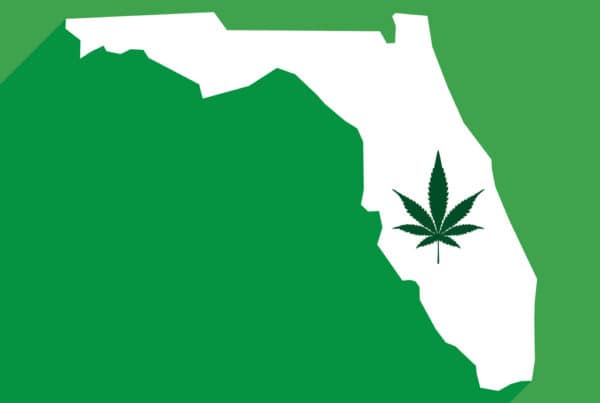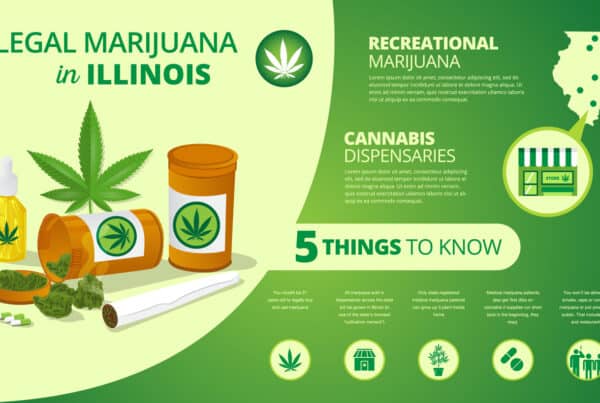TABLE OF CONTENTS
In 1996, the Compassionate Use Act made medicinal cannabis legal in California, making it the first state to do so. After legalizing cannabis for recreational use, the state kept updating its cannabis laws to improve usage rights and controls. Let's take a deeper look into California cannabis laws.
California Medical Cannabis Laws
Patients over 18 who have a doctor's recommendation may obtain medical cannabis. Cannabis users' medical rights are now safeguarded by California law, guaranteeing that patients receive care regardless of their marijuana usage. This involves defending the rights of cannabis users' parents as well as the ability of terminally sick individuals to use cannabis in medical settings.
What are the requirements to obtain medical marijuana in California?
- Obtain a valid Medical Marijuana Identification Card (MMIC) from the state.
- Consult with a qualified physician who can recommend cannabis for your specific condition.
- The physician must complete and submit the required paperwork to the state program.
What are the cannabis possession and cultivation limits in California?
- A qualified patient or primary caregiver may possess no more than eight ounces of dried marijuana per qualified patient.
- They may also cultivate no more than six mature or 12 immature marijuana plants per qualified patient.
- Local ordinances may further restrict possession and cultivation limits, so be sure to check your specific area.
Where can you use medical marijuana in California?
- Private property only: Not in public places, including parks, restaurants, or workplaces.
- Check local ordinances for additional restrictions: Cities and counties can have stricter rules than the state.

California Recreational Cannabis Laws
Adults 21 years of age and older are permitted to use. California makes sure that the cannabis business is strictly regulated for consumer protection, product quality, and preventing minors from accessing it. The framework for cannabis business operations in the state is provided by the Medicinal and Adult Use Cannabis Regulation and Safety Act (MAUCRSA).
While medical marijuana has been legal in California since 1996, recreational use was legalized in 2016 via Proposition 64 (Adult Use of Marijuana Act). Here's a summary of the key points:
Who can use recreational cannabis?
- Must be 21 years old or older.
- Legal for both residents and non-residents.
What can you possess?
- Up to one ounce (28.5 grams) of dried cannabis flower.
- Up to eight grams of concentrated cannabis products (oils, edibles, etc.).
- Limited amounts of other forms like live plants and processed marijuana (check specifics on https://www.cdtfa.ca.gov/industry/cannabis.htm).
Where can you use it?
- Private property only: Not in public places, including parks, restaurants, or workplaces.
- Not while driving or operating machinery: Driving under the influence is a crime.
- Check local ordinances for additional restrictions: Cities and counties can have stricter rules than the state.
Other important points:
- Purchase from licensed retailers only.
- Public consumption is banned, including smoking outdoors in public areas.
- Sharing with minors is illegal.
- Transporting cannabis must be in sealed containers and out of reach of drivers.
- Driving with open containers or under the influence can lead to arrest and significant penalties.
California Cannabis Possession Limits
If their doctor advises it, California medicinal cannabis users are permitted to possess more plants at home and have higher possession limits. The law allows recreational users to cultivate up to six cannabis plants at home in California.
California Home Cannabis Cultivation Laws
Californians who are 21 years of age or older are permitted to cultivate up to six cannabis plants at home, while there are restrictions on the use of volatile solvents during processing. There can be further rules governing home cultivation in your local jurisdiction.
Qualifying Conditions For Medical Marijuana in California
- Anorexia nervosa
- Arthritis
- Cachexia (wasting syndrome)
- Cancer
- Chronic pain
- Glaucoma
- HIV/AIDS
- Migraine
- Persistent muscle spasms (e.g., MS)
- Severe nausea
- Seizures (e.g., epilepsy)
- Any other illness for which marijuana provides relief (determined by a physician) Remember, you'll need a doctor's recommendation and an MMIC from the California Department of Public Health to qualify. For further details and resources, check out the CA Department of Public Health's Medicinal Cannabis Information website.
California Cannabis Caregiver Laws
Caregivers are crucial in helping patients with their medicinal cannabis requirements. In addition to having to abide by state laws, they frequently get and administer cannabis for those who are unable to do it for themselves.
The Medical Marijuana Identification Card Program (MMICP) in California includes the state's regulations pertaining to cannabis caregivers. These laws shield qualified individuals from prosecution when they help qualifying patients obtain and use medical marijuana. Below is a synopsis of the main ideas:
How can someone be a caregiver in California?
-Minimum age requirement is eighteen
-Must always take ownership of the patient's housing, well-being, or safety
-Can only provide care for patients who reside in the same county or city as the caregiver, barring special circumstances
-Cannot, absent certain circumstances, serve as the primary caregiver for more than five patients
What duties fall on the patient and caregiver?
-Patient: Obtain from the state a valid MMIC card.
-On their MMIC application, indicate who is the caregiver.
-Any changes in the primary caregiver should be reported to the county program within seven days.
-Utilize the MMIC card exclusively for what it was designed for.
-In the presence of the patient, caregivers should apply for an MMIC card.
-Deliver identity verification and any other necessary paperwork.
-Adhere to all relevant medical marijuana rules and regulations.
-Keep track of the quantity of marijuana that each patient has grown and owns.
-Any changes to the patients should be reported to the county program within seven days.
California Cannabis College
To learn more about California cannabis laws and prepare yourself for a cannabis career, enroll at the #1 California cannabis college, Cannabis Training University!
California Cannabis Law FAQ's
What is the daily cannabis limit in California?
One ounce of cannabis may be purchased daily by adults 21 and older. Products containing up to 1,000 mg of THC are available for purchase by adults 21 and older. THC levels in edible cannabis products for recreational or adult use are limited to 100 mg per product, with a maximum of 10 mg per serving.
“
There are over 300,000 jobs in the cannabis industry. CTU trained me for one of them!

Makes $24.50 @ THC +
Do you need a California license to go to a dispensary?
You will require a legitimate form of identification to establish that you are of legal age in order to attend a marijuana shop. This could be a passport, driver's license, or identity card from the government. It is not required to be in an official state ID format.
How much weed can you have in your home in California?
Adults over the age of 21 are permitted to possess up to 8 grams of concentrated cannabis or 28.5 grams of flower. Six plants may also be grown for personal consumption.
How much money does a dispensary owner make on average in California?
Running a dispensary brings in an average yearly salary for dispensary owners of $250k to $500k.

Fred Hernandez
Fred Hernandez is a highly accomplished and versatile writer, boasting an extensive background in the cannabis industry. With an in-depth understanding of various sectors including cultivators, processors, retailers, and brands, Fred's expertise spans across the entire cannabis landscape. As a prominent contributor to CTU, he consistently delivers insightful articles exploring the latest developments, news, and regulations shaping the cannabis industry. Whether it's delving into the intricacies of cannabis products, cannabis strain reviews, or providing comprehensive analyses of cannabis laws, or sharing expert insights on cannabis cultivation techniques, Fred's wealth of knowledge positions him as an invaluable writer and educator for all cannabis-related subjects.












 Jeff was involved in an accident where he endured a traumatic brain injury. He had a week-long stay in ICU where brain surgeons
Jeff was involved in an accident where he endured a traumatic brain injury. He had a week-long stay in ICU where brain surgeons  100% risk free money back guarantee within 48 hours after purchase if student has not completed any of the courses or exams.
100% risk free money back guarantee within 48 hours after purchase if student has not completed any of the courses or exams.